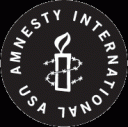Podcast: Play in new window | Download
Why Did Pulitzer Ignore Juan Gonzalez’s Reporting on Air Quality at Ground Zero?
Co-hosts Michael Ratner and Michael Smith commend the valuable investigative journalism by columnist and Democracy Now cohost, Juan Gonzalez. Gonzalez had written extensively about the air quality at Ground Zero after September 11th. Read more here. Here is an archive of Juan Gonzalez’s columns.
Co-hosts also discuss Supreme Court partial birth abortion ruling (PDF) and Michael Ratner‘s trip to Paris and the follow up on the case brought against former US Secretary of Defense Donald Rumsfeld in Germany.
—-
Drug Provision of the Higher Education Act
A coalition of groups including criminal justice, drug treatment, health organizations are seeking to repeal the Drug Provision of the Higher Education Act. It’s a 1998 law that delays or denies federal financial aid to people convicted of state or federal drug offenses. Since the law took effect in 2000, 200 thousand students have been denied financial aid. According to the Department of Education, that’s one in every 400 students rejected who apply for federal aid.
As a result, these young students, having already been punished for their offenses are now dropping out of school or reducing courses. Today, there are more than 300 organizations working to overturn this law.
Guest – David Borden, Executive Director of the Drug Reform Coordination Network. David’s been very active lately in lobbying to repeal the Drug Provision of the Higher Education Act (also known as the “Aid Elimination Penalty)
—-
Amnesty Report on Guantanamo Bay Prison Conditions
Earlier this month, Amnesty International released a report detailing the horrid prisoner conditions at Guantanamo Bay, Cuba. The report includes descriptions such as extreme isolation, sensory deprivation, solitary confinement 22 hours a day, and 24 hour lighting. Eighty per cent of the approximately 385 men currently held at Guantánamo are in isolation. Amnesty International also reports that the cells have no windows to the outside or access to natural light or fresh air.
Amnesty International is also calling on the government to allow independent health care professionals into Guantánamo to examine detainees in private and to allow visits by independent human right organizations and UN human rights experts.
Co-host and Amnesty International Director of the USA program, Dalia Hashad reads an excerpt from Bisher al-Rawi’s moving letter to free Guantanamo prisoners.
Guest – Shane Kadidal, an attorney with the Center for Constitutional Rights.
—-




